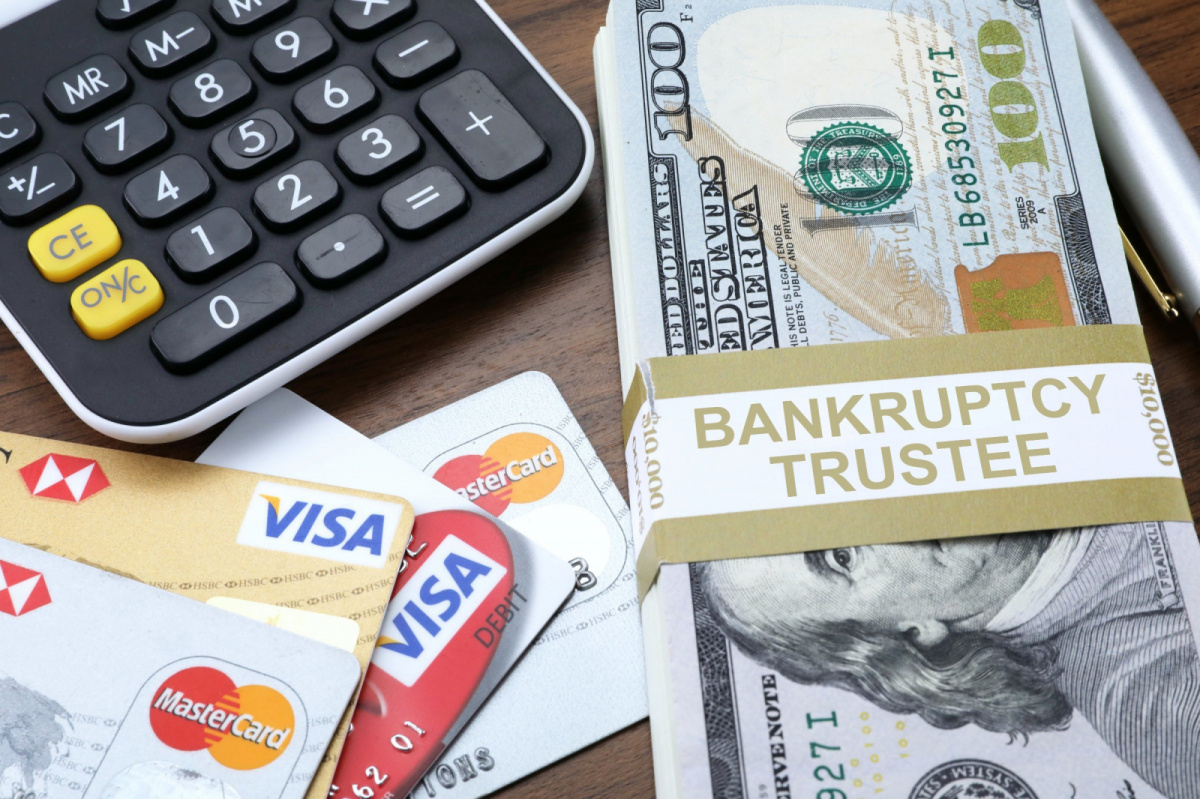The cost of applying for bankruptcy is often prohibitive, but there is a gamut of options to explore. Having an apt knowledge of the difference between Chapter 7 and Chapter 13 bankruptcy can protect you from making mistakes.
Imagine having just $100 left in your checking account with $300 in utility bills due a week before you get paid next. You realize that filing bankruptcy may be a good option for you, but what’s the cost? Now imagine meeting with a bankruptcy attorney and hearing that the cost of attorney fees is $1,500, while the filing fee is $350.
The question on your mind here will undoubtedly be; “How can I afford to file for bankruptcy? I can’t even afford my utility bill.”
This is a prominent question many people have before filing bankruptcy. The cost of filing for bankruptcy can be pretty prohibitive, but let’s cover some tricks to make this a reality.
Chapter 7 vs. Chapter 13 Bankruptcy and Costs
Seeking a bankruptcy discharge is often the last option folks utilize when facing financial hardship. There are numerous undesirable impacts and potentially other demerits to consider before you apply for a discharge. There are also numerous types of bankruptcy, but the most common are Chapter 7 bankruptcy and Chapter 13 bankruptcy. We will cover both of these in detail.
Chapter 7 Bankruptcy Costs for Beginners
Many people file a Chapter 7 bankruptcy because it is less expensive and fast. You can receive your bankruptcy discharge in as little as 120 days. Furthermore, the main costs are the bankruptcy attorney fees (if you decided to hire one) and the bankruptcy filing fee.
The Chapter 7 bankruptcy lawyer cost can often range between $500 – $3000, depending on such factors as your location, complexity of the case, and other factors.
The Chapter 7 bankruptcy filing fee is $338.
You do have to qualify for Chapter 7 bankruptcy, which you can estimate by using what’s called the bankruptcy means test. The bankruptcy means test is designed to determine whether you have the “means” to pay back some of the debt.
Payments Plans
It’s quite common to see bankruptcy attorneys take payment after a free Chapter 7 bankruptcy filing fee. Not requesting full payment may mean that they’ll have to forfeit their fees since those that file for bankruptcy are individuals with low disposable income. A smart means for attorneys to get their payment is by offering a $0 down on Chapter 7 filing and including the payments in a payment plan. However, it is important to have it at the back of your mind that the total cost is often more because the attorney takes extra risk. The risk is that you can’t keep making payments after a Chapter 7 bankruptcy payment.
Pro Se Chapter 7 Bankruptcy Filing (The $0 Cost Option)
The term Pro Se is a common legal term that means that you are doing something by yourself. Many people question whether they need a bankruptcy attorney. And while a bankruptcy attorney can be very beneficial, many people decide to file Chapter 7 bankruptcy without one.
For example, the Chapter 7 bankruptcy is often much more straightforward than the Chapter 13 bankruptcy option. For a Chapter 13 bankruptcy, only 2.3% end in bankruptcy discharge when filed without an attorney.
The cost of bankruptcy significantly reduces when filing Pro Se. The only payments you’ll be required to pay are credit counseling fees, filing fees, and all kinds of miscellaneous expenses.
Many people are concerned that they may lose a home in a Chapter 7 bankruptcy, but you are often able to protect your home by utilizing bankruptcy homestead exemptions.
Chapter 13 Bankruptcy Costs for Beginners

Chapter 13 bankruptcy is generally considered as a payment plan bankruptcy, and it’s more expensive as the bankruptcy case often lasts 3 or 5 years.
There are two main costs in a Chapter 13 bankruptcy that you should be aware of: Chapter 13 Bankruptcy Attorney Fees and the Chapter 13 Trustee fees. Yes, there are other fees such as the filing fee of $313, the credit counseling course, debt education course, but these are small comparatively.
Before I begin, many of these fees are included in the Chapter 13 plan, but you should be aware of them as you do have to pay them.
Chapter 13 Bankruptcy Attorney Fee
The Chapter 13 Bankruptcy attorney fee is estimated between $2,500 – $6,000. Many attorneys require a small upfront payment, and then the rest is included in the Chapter 13 plan. The fee is often similar across a bankruptcy district as these are known as the no look fee, which is the reasonable cost for a Chapter 13 bankruptcy fee.
Chapter 13 Trustee Fee
One of the biggest fees that many people are not aware of, but you should be is the Chapter 13 trustee fee. These fees can result in thousands of dollars paid through the plan. The Chapter 13 trustee helps administer the bankruptcy case. You can find the Chapter 13 administrative fees, here for cases filed after May 15, 2021.
Something to Watch Out For
A major reason to be aware of the differences between Chapter 7 and Chapter 13 bankruptcy is to have an apt understanding of Chapter 13 bankruptcy to prevent getting pushed to file under Chapter 13 bankruptcy.
Why would a bankruptcy attorney suggest that you file a Chapter 13 bankruptcy when you qualify for a Chapter 7 bankruptcy? Could it be due to Chapter 13 cost? Who knows?
Having said that, you should take a free online test with a Chapter 13 vs. Chapter 7 bankruptcy calculator; this helps to holistically make a comparison of your bankruptcy and its alternative options to make an apt decision.
Also, there are some times where opting for a Chapter 13 bankruptcy is the ideal option, even if you don’t qualify for a Chapter 7 bankruptcy discharge. So you may just carry out quick research to know your best option before experiencing a Chapter 13 horror story.
Conclusion
Financially undesirable moments happen that make people consider bankruptcy as the best option available.
The cost of applying for bankruptcy is often prohibitive, but there is a gamut of options to explore. Having an apt knowledge of the difference between Chapter 7 and Chapter 13 bankruptcy can protect you from making mistakes. Have an understanding that a lot of bankruptcy attorneys take payments, and some people even file bankruptcy without requesting help from an attorney.


Join the conversation!